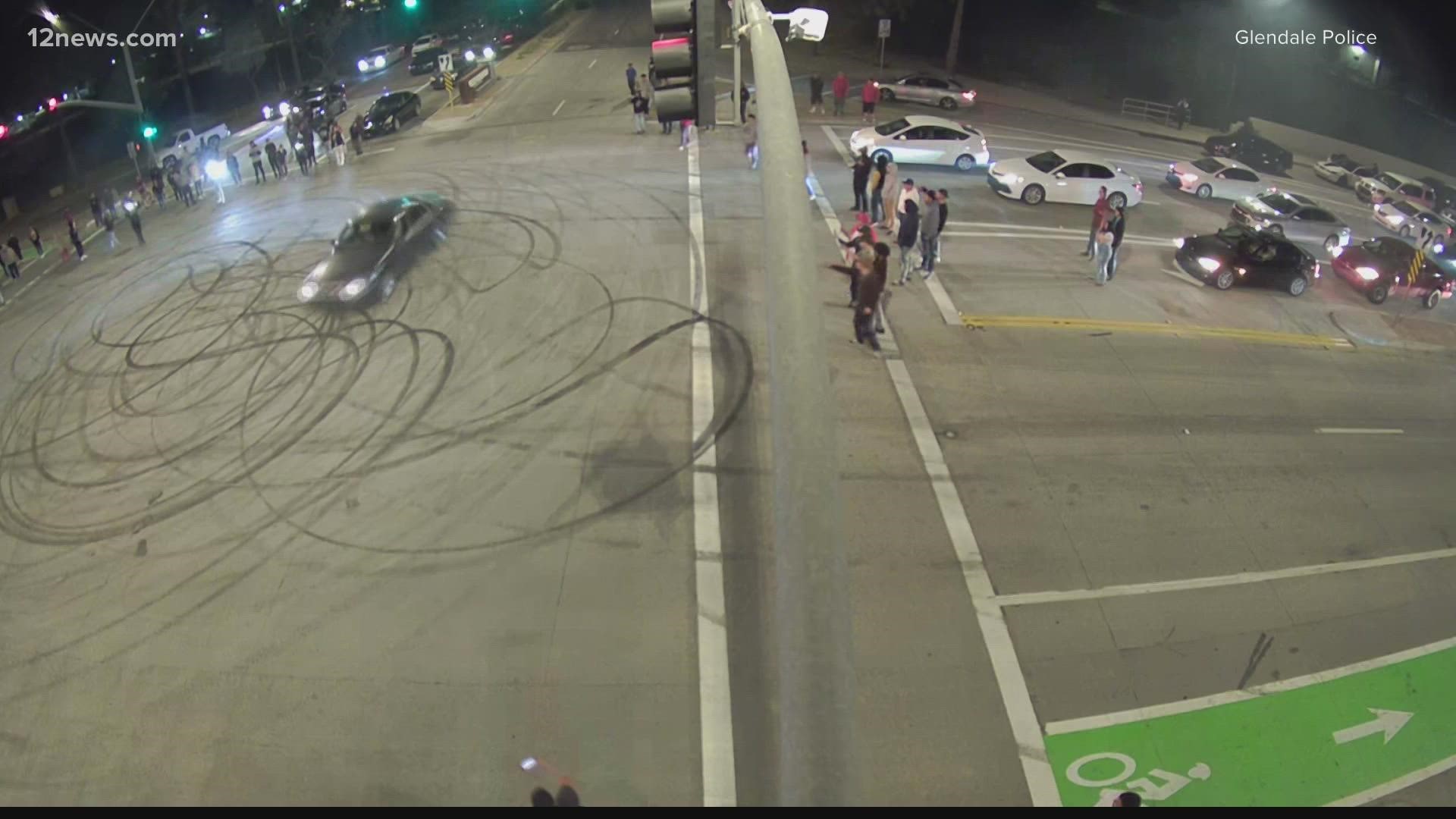PHOENIX — Street tricks and street racing have become more and more common across Phoenix in the last few years.
Police have cracked down on the problem by creating a dedicated street racing task force, but what happens in the courtroom after the drivers are cited or arrested?
Alden Yako, a Valley attorney and founder of Yako Law, said many street racing cases used to get dismissed in court in Arizona but not anymore.
"Prosecutors are just not willing to work with people like they used to, and the reason why that is because of the huge uptick of racing incidents we’ve had over the last few years," Yako stated.
Phoenix Police said they received 6,200 calls for service in 2020. In 2021, that number dropped to about 4,500.
Police issued 2,000 citations in 2020, compared to more than 600 last year, and filed 5,200 charges in 2020, with just more than 1,200 in 2021.
"So what used to happen, for example, if there was a gray area in your case and you had a good driving record the county prosecutor would work with you to maybe get a deviation to a lower charge," Yako added.
"But now because of all the racing incidents the county basically has a hard line on racing. That gray area is gone."
While the racing, donuts, and burnouts might seem fun, it’s dangerous and the punishment is no joke.
"A conviction of a racing charge is a Class 1 misdemeanor, so the first thing that happens is you get a criminal record, which you don't want," he explained. "Then you get a fine of $250, that's the least amount you have to pay. Then you have eight points on your driving record and you have to take traffic survival school."
What if you’re convicted of street racing-related crimes twice in two years? It's a felony, and you're not just facing fines.
"Not only do you get a one-year license suspension, but you also have to do a mandatory jail sentence of 10 days and there’s no way around that."
Yako said it’s just not worth it.
"A lot of this stuff happens with 18 to 25-year-olds and they’re not thinking what’s going to happen. They're not thinking, 'Oh you're going to get a criminal record,' then when they're looking to go to college or get a job and there's a criminal background check. They don't realize how much this affects that."
Up to Speed
Catch up on the latest news and stories on the 12 News YouTube channel. Subscribe today.

